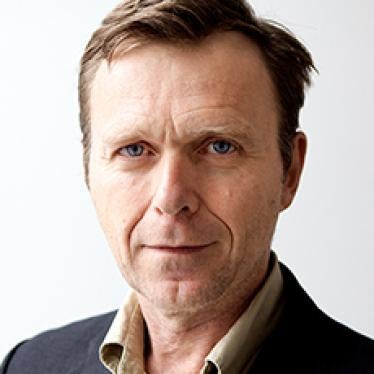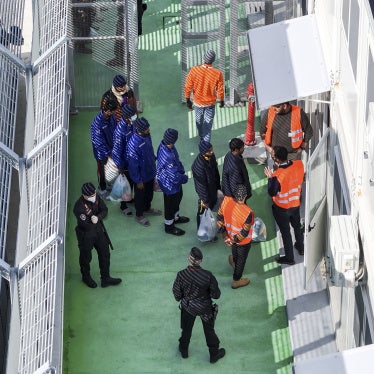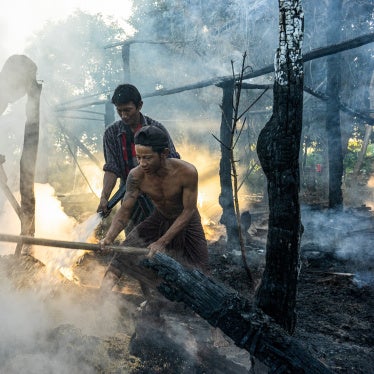The world is facing a massive refugee crisis. Yet there's something missing from the international response: compassion.
Claiming threats to national security, economic and political stability, and social cohesion, governments are building fences, patrolling the high seas, pushing migrants and asylum seekers back at borders, detaining and summarily deporting them, and denying them their right to apply for asylum.
The latest manifestation of this callous approach is playing out in the Malacca Straits and the Andaman Ocean, where Malaysia, Thailand and Indonesia have been pushing back boatloads of desperate ethnic Rohingya fleeing persecution in Myanmar, joined by destitute Bangladeshis.
On Wednesday, Indonesia and Malaysia grudgingly offered to provide temporary shelter to some of these desperate people on humanitarian grounds, and Thailand has promised to stop pushing the boats back. But the fact remains that the governments in Kuala Lumpur, Bangkok and Jakarta can get away with a callous approach because few other countries, least of all influential Western donors, can speak about the proper treatment of migrants and asylum seekers without engaging in the most blatant hypocrisy.
Indeed, far from calling for some compassion toward these "boat people," Australia is actually abetting the policies of its Asian neighbors through its own dreadful example.
Determined to prevent migrants and asylum seekers from landing on Australian shores, Canberra's cold-hearted, even unlawful policies include towing boats back to sea, detaining people off-shore without a real possibility of gaining asylum, returning at-risk Sri Lankans, and writing international refugee protections out of Australian law.
And Australia's leaders are proud of these policies. Prime Minister Tony Abbott last month responded to the drowning of hundreds of migrants and asylum seekers in the Mediterranean by recommending that the European Union take a leaf out of his government's book. "The only way you can stop the deaths is to stop the people smuggling trade," he said. "The only way you can stop the deaths is in fact to stop the boats."
Abbott's message fell on willing European ears. In its response to the crisis in the Mediterranean the European Union is refining policies that prioritize law enforcement and border security over rights and humanitarian protection.
Much of the EU's focus is on stopping the smugglers, strengthening the EU border control agency, Frontex, and processing asylum claims off-shore. While the EU has stepped up search-and-rescue operations and the European Commission (the EU's executive body) has this month proposed increasing the number of asylum seekers to be hosted across the EU, several member states including the United Kingdom say they won't participate in any resettlement quota scheme.
The United States is no better placed than Australia or EU governments to speak with moral authority on the treatment of asylum seekers and migrants. The U.S. government is working outside its borders and on the high seas to block access to U.S. asylum procedures and denying some who reach U.S. territory a genuine opportunity to apply for protection. Although the Obama administration has recently adopted some reforms, the United States has been apprehending at the border 50,000 parents of U.S.-citizen children and deports them.
Not all governments have turned their backs on those fleeing war and persecution. Turkey has admitted almost 1.8 million refugees from Syria in the past 4 years; Jordan has taken in 600,000; most remarkable of all, tiny Lebanon has received almost 1.2 million Syrians -- about one quarter of the country's population.
But these front-line countries, and others in Asia and Africa that have received large refugee populations, are struggling and have increased restrictions at their borders. It is deeply ironic that wealthy Western countries refuse to share the burden of the global refugee crisis on grounds that admitting more refugees would threaten their stability and security. What about the security and stability of a relatively poor country like Lebanon?
There is real concern that if the front-line countries fully close their borders, then refugees will resort to increasingly dangerous options to escape death, destruction and discrimination at home.
It's not just compassion that the United States, EU member nations, Australia and others are lacking. They also lack foresight. There may be some political and economic costs at home to accepting more refugees in the short term. But the international consequences of leaving poorer and more vulnerable countries to bear the brunt of the world's refugee crisis are all too predictable: more crises, and more refugees.









